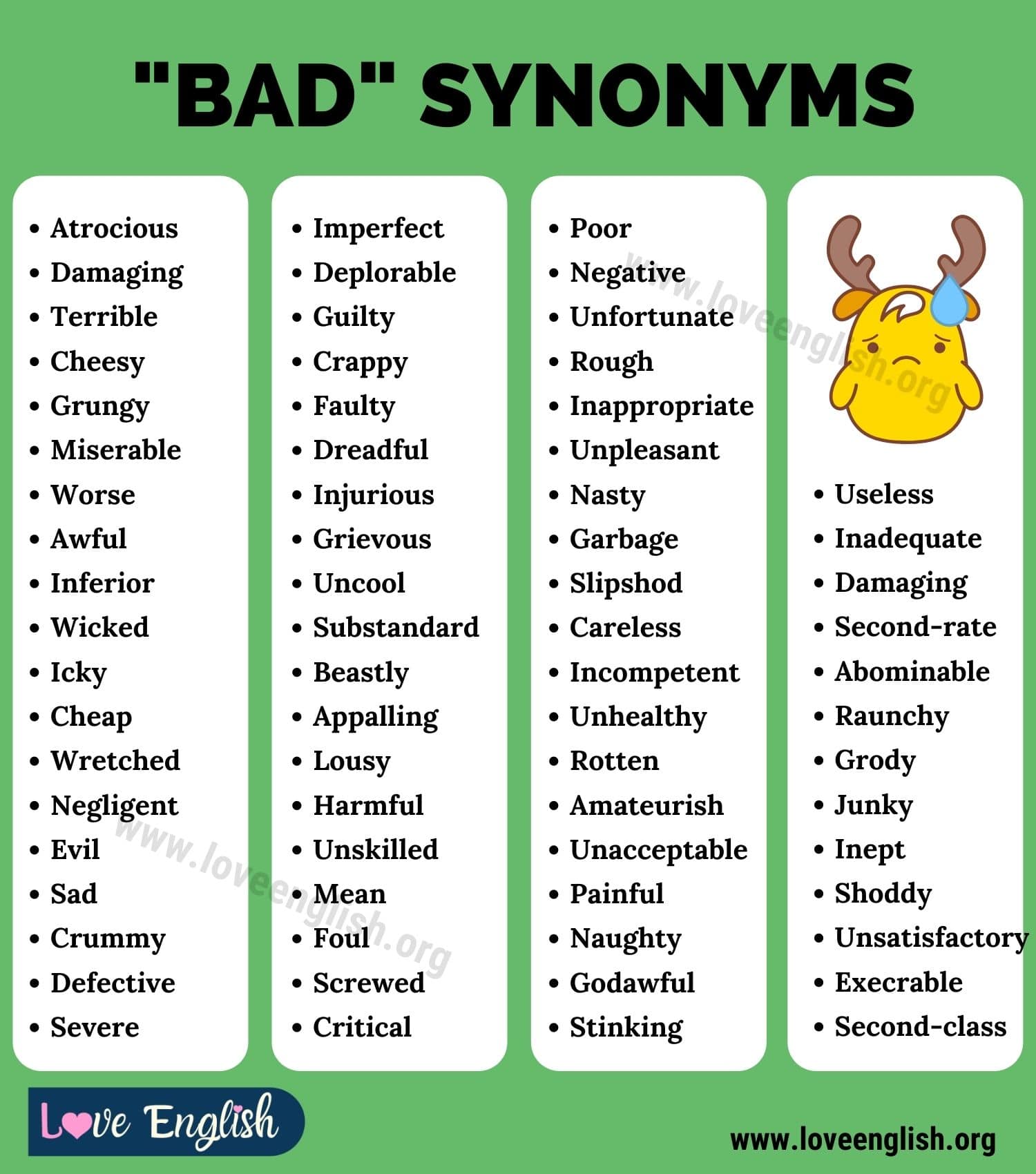Is Desmadre A Bad Word? Exploring The Meaning, Usage, And Cultural Context
Let’s dive right into the heart of the matter—what exactly is desmadre, and why are people talking about it? If you’ve stumbled upon this term and wondered whether it’s something you should use or avoid, you’re not alone. Desmadre is a word that carries a lot of weight in Latin American culture, and its meaning can vary depending on context. So, is desmadre a bad word? That’s what we’re here to figure out.
In today’s globalized world, words travel fast, and with the rise of social media, terms like desmadre have made their way into conversations far beyond their native regions. But before we dive deep into whether desmadre is offensive or not, let’s set the stage. This word isn’t just a random string of letters—it’s a cultural artifact that tells a story about how language evolves and how people express themselves.
Now, buckle up because we’re about to unpack the meaning, history, and cultural significance of desmadre. Whether you’re a language enthusiast, a curious learner, or just trying to avoid accidentally offending someone, this article has got you covered. Let’s get started!
- Der Woke Mind Virus Bedrohung Oder Rhetorische Waffe
- Filme Downloaden Die Zukunft Amp Legalitt Von Movie Downloads Erklrt
What Does Desmadre Mean?
Desmadre is a Spanish word that roughly translates to “disorder,” “mess,” or “chaos” in English. But here’s the thing—its meaning isn’t as straightforward as a simple translation. Depending on where you are and who you’re talking to, desmadre can mean anything from a minor inconvenience to a full-blown disaster. In some contexts, it’s used playfully, while in others, it can carry a negative connotation.
For example, if your friend says, “¡Qué desmadre!” after spilling coffee on their shirt, they’re probably not mad—they’re just acknowledging the chaos of the situation. On the other hand, if someone uses desmadre to describe a riot or a serious problem, it takes on a much heavier tone.
The beauty of desmadre lies in its flexibility. It’s one of those words that can adapt to the mood and tone of the conversation, making it both versatile and tricky to pin down.
- Filme Finden Leicht Gemacht Dein Guide Durch Die Streamingwelt
- Schreiben Lernen Neu Ist Das Wirklich So Einfach Die Lsung
Where Does Desmadre Come From?
Like many words in the Spanish language, desmadre has roots that go back centuries. The word is derived from “madre,” which means “mother.” In old Spanish, “des-” was a prefix used to indicate the absence or removal of something. So, desmadre literally means “without mother” or “motherless.” Over time, the word evolved to mean chaos or disorder, likely because a household without a mother was seen as unruly or disorganized.
But don’t let the etymology fool you—desmadre isn’t just an old-fashioned term. It’s alive and well in modern Spanish, particularly in Mexico and other Latin American countries. In fact, it’s become such a staple of everyday conversation that you’ll hear it everywhere, from casual chats to news headlines.
Desmadre in Mexican Spanish
Let’s zoom in on Mexico, where desmadre is most commonly used. In Mexican Spanish, desmadre isn’t just a word—it’s a way of life. It’s the go-to term for describing anything that’s out of control, from traffic jams to political scandals. And while it can be used in a negative sense, it’s often delivered with a touch of humor or resignation.
For example:
- “Este tráfico es un desmadre.” (This traffic is a mess.)
- “La fiesta terminó en un desmadre.” (The party ended in chaos.)
- “No entiendo por qué siempre hay desmadre aquí.” (I don’t understand why there’s always chaos here.)
In Mexico, desmadre is often used as a noun, but it can also function as an adjective or even a verb. Yeah, you read that right—“desmadrarse” is a verb that means to become chaotic or out of control. Talk about linguistic flexibility!
Is Desmadre Offensive?
Now, let’s tackle the big question—is desmadre a bad word? The answer, as with many things in life, is: it depends. In most cases, desmadre isn’t considered offensive. It’s a neutral term that’s widely accepted in informal conversations. However, there are situations where it could come across as rude or inappropriate.
For instance, if you’re talking about a serious issue like corruption or violence, using desmadre might downplay the gravity of the situation. Similarly, if you’re in a formal setting or speaking to someone older or in a position of authority, it’s probably best to stick with more polished language.
That said, desmadre is rarely, if ever, considered a swear word. It’s more of a colloquialism than a curse. So, unless you’re using it in a disrespectful or sarcastic way, you’re unlikely to offend anyone.
Desmadre in Different Contexts
Let’s break it down further by looking at how desmadre is used in different contexts:
- Positive Context: Desmadre can be used affectionately to describe a fun, chaotic event. For example, “La boda fue un desmadre, pero nos la pasamos genial.” (The wedding was a mess, but we had a great time.)
- Negative Context: In more serious situations, desmadre can carry a negative connotation. For example, “El gobierno no hace nada para controlar este desmadre.” (The government isn’t doing anything to control this chaos.)
- Neutral Context: Sometimes, desmadre is used simply to describe a state of disorder without any judgment. For example, “Mi cuarto está en desmadre.” (My room is in chaos.)
As you can see, the tone and context matter a lot when it comes to desmadre.
Desmadre vs. Other Words
While desmadre is a popular term in Latin America, it’s not the only word used to describe chaos or disorder. Let’s compare it to some alternatives:
- Desorden: This is a more formal term for disorder. It’s less colorful than desmadre but gets the job done.
- Fiesta: While fiesta usually means party, it can sometimes be used humorously to describe a chaotic situation. For example, “Este tráfico es una fiesta.”
- Desastre: This word means disaster and is often used to describe something truly catastrophic. It’s a bit stronger than desmadre.
Each of these words has its own nuance, and choosing the right one depends on the situation and your audience.
Desmadre in Pop Culture
Desmadre isn’t just a word—it’s a cultural phenomenon. You’ll find it popping up in music, movies, and TV shows, often used to add a touch of authenticity to Latinx characters. For example, in the popular Netflix series "Narcos," you might hear someone exclaim, “¡Qué desmadre!” when things go sideways.
Even in non-Spanish-speaking media, desmadre has made appearances. In the movie "Coco," which celebrates Mexican culture, you might catch a character using the word in a lighthearted way. It’s a testament to the word’s versatility and enduring appeal.
Desmadre in Music
Music is a great place to explore how desmadre is used in everyday speech. Latin American artists often incorporate the word into their lyrics to convey emotion and authenticity. For example, in a song about heartbreak, you might hear:
“Todo se convirtió en desmadre cuando te fuiste.”
(Everything turned to chaos when you left.)
In rap and reggaeton, desmadre is often used to describe the wild, unpredictable nature of life. It’s a word that resonates with listeners because it’s relatable and real.
How to Use Desmadre in Your Own Conversations
Now that you know what desmadre means and how it’s used, you might be wondering how to incorporate it into your own conversations. Here are a few tips:
- Start Small: Begin by using desmadre in informal settings with friends or family who are familiar with the term.
- Pay Attention to Context: Make sure the situation calls for desmadre. If you’re unsure, it’s better to err on the side of caution.
- Practice Tone: Desmadre can be playful or serious, so pay attention to your tone when using it.
- Learn Variations: Experiment with different forms of desmadre, like “desmadrarse” or “estar en desmadre.”
Remember, language is all about communication. As long as you’re using desmadre respectfully and appropriately, you’re good to go.
Common Misconceptions About Desmadre
There are a few misconceptions about desmadre that we need to clear up:
- It’s Not Always Negative: While desmadre can describe bad situations, it’s often used humorously or affectionately.
- It’s Not a Swear Word: Desmadre isn’t considered vulgar or offensive in most contexts.
- It’s Not Exclusive to Mexico: While desmadre is most common in Mexico, it’s used in other Latin American countries as well.
By understanding these nuances, you can use desmadre more effectively and avoid any potential misunderstandings.
Final Thoughts
So, is desmadre a bad word? The answer is a resounding no—at least, not in most cases. It’s a versatile, colorful term that’s deeply rooted in Latin American culture. Whether you’re using it to describe a chaotic situation, a fun party, or a minor inconvenience, desmadre adds flavor and authenticity to your conversations.
But here’s the thing—language is powerful, and how you use words matters. If you’re unsure about whether desmadre is appropriate in a given situation, take a moment to consider the context and your audience. And if you’re ever in doubt, don’t hesitate to ask a native speaker for guidance.
Now that you’re armed with knowledge, why not give desmadre a try? Whether you’re chatting with friends or exploring Latin American culture, this word is sure to come in handy. And who knows? You might just find yourself saying, “¡Qué desmadre!” the next time something unexpected happens.
So, what do you think? Are you ready to embrace desmadre and all its chaotic glory? Let us know in the comments below, and don’t forget to share this article with your friends. Until next time, keep exploring, keep learning, and keep having fun!
Table of Contents
Where Does Desmadre Come From?
Desmadre in Different Contexts
How to Use Desmadre in Your Own Conversations
Common Misconceptions About Desmadre
- Skirby Dog Video Was Wirklich Geschah Der Skandal Erklrt
- Marcella Samora Eine Mutterliebe Die Selenas Tod Berwindet

Bad Words In English With Meaning

Bad Sayings

Another Word for BAD 70 Common Synonyms for Bad in English Love English